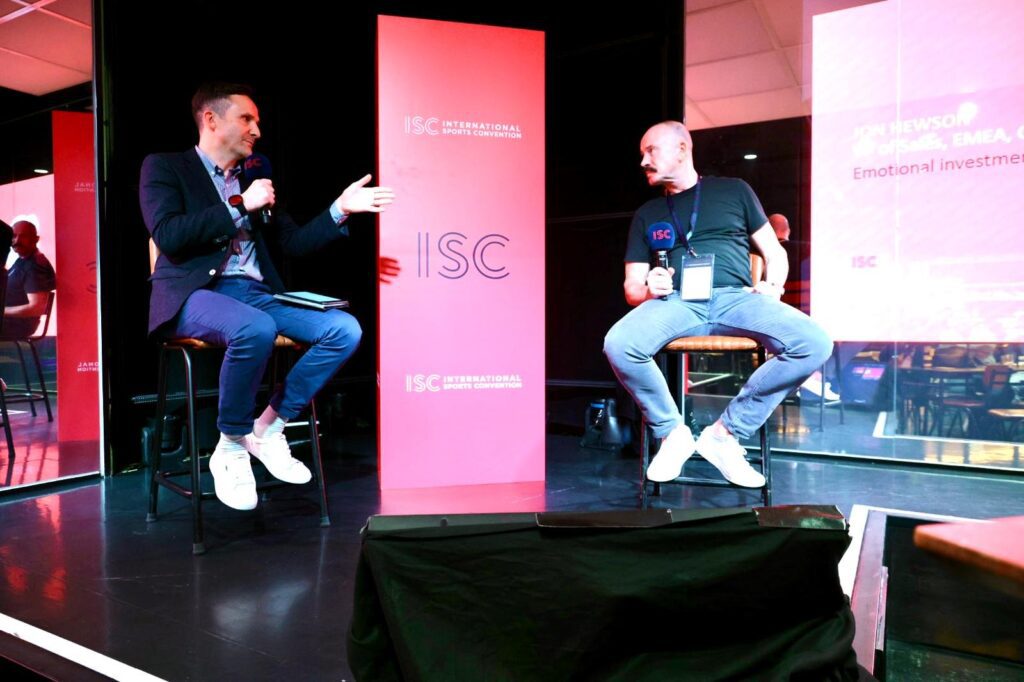To close out the ISC Fan Engagement Summit 2025, the audience was reminded of what lies at the core of sport: emotion.
The case was made in an interview with Jon Hewson, VP of Sales for EMEA at Genius Sports. While that company specialises in the comprehensive and forensic application of data for commercial growth, he argued, the relevance of emotion for any business should not be overlooked.
Hewson cited research from Harvard Business School which has found that 84% of buying decisions are based in emotion, rather than logic. In sport, then, rights holders and their partners need to understand emotion as a transactional lever, and not just as a background environmental factor.
Genius Sports initially began generating in-play data to power sportsbooks. With much of that information derived from digital cameras around the field of play – the company’s technology is incorporated in the semi-automated offside system in elite football – it has consistently grown the volume and specificity of the data it can record and process.
This means Genius can now create digital twins of real-world games: a potent capability for betting companies and broadcasters. And it can increasingly use its insights to pinpoint and model moments of heightened tension, emotion and release within sports events.
That can be applied within individual games but in competitions like the Premier League, being active in every fixture means Genius can cross-reference datapoints between different venues. This builds additional context for big moments – enabling it to record the impact of a big goal in one game that affects the significance of another in a title race or relegation battle.
This is put to commercial use in a variety of settings. Genius Sports is a partner of several fantasy sports leagues run by media companies and the likes of the Premier League – as well as the NFL Predictor game – and it uses emotional signifiers to inform effective creative formats for engagement.
Emotional mapping also helps Genius Sports inform sponsors to design better online and hybrid campaigns. Beer brand Guinness worked with the company on a Six Nations Rugby initiative to help fans find the right pub for each big game – a scheme that also generated valuable localised sales data for owner Diageo and its buyers in the hospitality sector.
Meanwhile, Genius Sports is giving digital advertisers more sophisticated insights on when to serve messages to fans during and around events. 85% of ad exposure in sport, Hewson explained, is still on live TV, which is effective but expensive. Brands seeking an edge in digital spaces can maximise that impact by factoring in the emotional register of their target audience.
This is especially significant for emerging sports – where fans might be strongly engaged but where cost-efficiency is also a running concern – and highly relevant when it comes to younger audiences. Gen Z fans are likely to be emotionally connected to more sports in more digital settings than their older counterparts. Finding the right moment to reach them in the right way can make all the difference.

